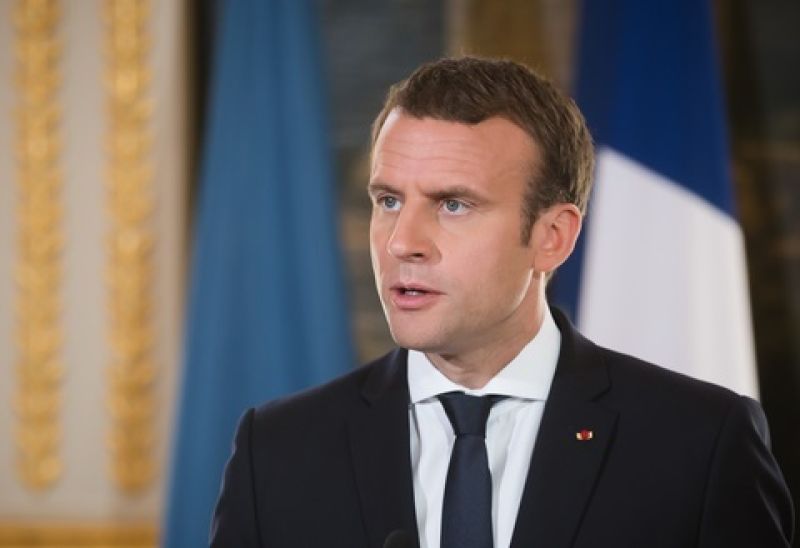Now the dust has settled after the French election, business owners in France will be wondering what the next five years has in store for them. Emmanuel Macron’s re-election victory looks good for businesses both in France and across the EU, for a multitude of different reasons. While simple continuity is valuable, everything about Macron’s record so far indicates that he will continue to modernise the French business landscape - making it a more competitive and attractive destination for international entrepreneurs.
While Macron’s victory was expected in early polling, it was far from guaranteed. Marine Le Pen is a stalwart of the French political scene, and this showing was her strongest ever. In an election marked by radical swings away from traditional parties and towards populists, the victory of the centrist Macron was closer than it seemed.
In spite of all this, the confidence of global markets is evident. A Le Pen election win would have posed a tangible threat to the stability of the EU at a critical juncture: Le Pen is not just a dyed-in-the-wool EU sceptic, but would have been taking the reins of a country that currently holds the EU presidency. Macron’s victory provides stability and continuity for the EU as well as France, and the markets have reflected this, with the euro rising against the dollar and pound sterling even before his expected victory.
Related article: How to start a business in France in 8 steps
Macron’s first term was characterised by a strong relationship with Germany, and a strengthening of the key mechanisms and institutions of the EU. This reinforcement of things like the European Central Bank and EU fiscal policy, as well as the stability granted by two centrist leaders in the EU’s two largest economies, provides a stable bedrock for businesses in France and across the continent.
An EU-wide Russian oil embargo might be one of the first things on the agenda for a leader both emboldened by his victory - comfortable, in the end - but chastened by the sudden growth of the far-right. Ukraine is an issue still dominating the agenda in Europe, and Macron is trying to steer the EU response to this crisis while protecting the integrity of the EU bloc and safeguarding its interests. The election win is likely to see him take centre stage on the EU’s current issues and projects.
This will inevitably see some impact on certain industries. However, this is likely to be less pronounced in France than in Germany, where leaders have argued against more draconian energy tariffs and embargoes. France is safer than its neighbours when it comes to energy reliance, producing a larger portion of its energy needs through nuclear - something eschewed entirely by Germany, which is heavily reliant on Russian natural gas.
Macron’s first-term plans to raise the retirement age progressively to 65 by 2031 (except for those in hard physical jobs) are likely to be completed by the autumn, with union and employer consultation in the summer. While he will not want to force the legislation through, it will be top of the agenda, particularly if he gets a strong majority in parliament. Some protests are likely, but its perception as pivotal to shoring up the post-COVID economy - and reducing the burden of France’s world-leading pension bill - should allow it to happen.
Related article: Where’s the best place to start a business in the south of France?
France has been notable for defying the COVID troubles of most major economies, with growth bouncing back faster than its neighbours, unemployment at record lows, and energy prices also low thanks to caps. The cost of living crisis is much less acute in France than other nations as a result, bolstering the consumer economy. All of this bodes extremely well - Macron is a business-first president, and will continue to be so during this term.
One major caveat in all this is the fact that France still needs to conduct its parliamentary elections on June 12th. Until that point, it will be unclear exactly how much of a mandate Macron has to implement his policies. The interim period may benefit him, however: the war in Ukraine presents an opportunity to present his strength of leadership, and he also has time to do the campaigning he largely avoided during the runup to this election, reaffirming his party’s conviction to make necessary and lasting changes to the French economy, as well as to negating climate change.
The last bit of context, however, is the term limit on French presidents. As Macron cannot run for a third term, there is no need to moderate his vision, and work on policies that build popular appeal. As long as he can guarantee support from his party - and other parties, depending on the results of the parliamentary elections - he will be free to implement the policies he believes are best for France. As a former banker, and on the evidence of his work so far, all of this should be hugely reassuring for businesses in France and across Europe.
Related article: How to buy or sell a business in France
Macron’s fault has always been that he is a highly competent technocrat with a fundamental understanding of economics, but relatively little in the way of an emotional connection with voters. Lacking the magnetic personality of some of his rivals, it took until the dawn of the election for him to realise its emotional stakes, and make a brief but concerted effort to connect with voters on Ukraine, financial instability and the climate crisis.
In a time of huge political turmoil, where opinions seem more divided than ever, Macron’s boringness may well be his strength. By being neither greatly loved or hated, Macron and his La Republique en Marche party can get on with what they’ve done well - a relentless drive for new economic policies, and a determination to transform the French business landscape.
For more information on how to open a company in France, take a look at our free downloadable guide below with all the information you need on what’s required to start your business in France, or email us via our contact page and we’ll be happy to help.







